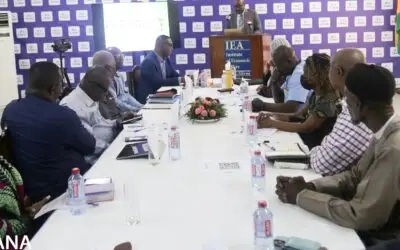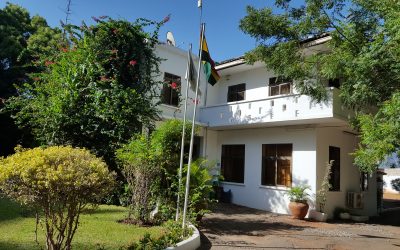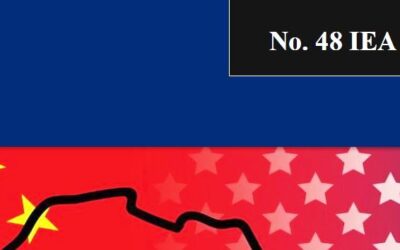We never imagined that the next world war would be against an enemy we are not able to see. Today, we are all fighting against the invisible coronavirus with all that we have. Minute by minute we hear of escalating figures of total cases and loss of lives to COVID-19. The impact has, however, been more than a health crisis. The World Health Organisation acknowledges that the pandemic is not only about health but is also an economic and social crisis. The International Monetary Fund projects that the global economy will contract sharply by 3.0 % in 2020. The Fund has further predicted that much worse growth outcomes are likely if the pandemic goes on longer.
Ghana has not been spared by the COVID-19 disease. With the number of cases still growing by the day, the Finance Minister, Ken Ofori-Atta, has indicated that economic activities are slowing down due to the coronavirus. In his recent address to Parliament on 30th March, he noted that the projected real GDP growth rate could decline from 6.8% to 2.6% this year. Mr. Ofori-Atta said that growth could fall to 1.5% in the event of a partial lockdown or even lower under a full lockdown. He proposed a number of interventions to support the economy and counter the impact of the pandemic. One of them was to amend the Petroleum Revenue Management Act (PRMA) to allow government to withdraw from the Ghana Heritage Fund, which is earmarked for future generations. The withdrawal is intended to fund urgent expenditures in relation to the coronavirus crisis. The proposal has reignited the debate as to whether the Heritage Fund could be used for urgent current expenditures.
In a recent informal opinion poll on Facebook by the Institute of Economic Affairs, 12 (38%) out of 32 respondents approved the Minister’s proposal while nine (28%) disapproved. Eleven (34%) of the respondents, a significant number, had other views about the fund. Although the sample we got was not representative, some useful inferences can be deduced from the comments posted.
Eight of the 12 respondents who were in favour, representing a significant 67% of that group, thought that saving lives was paramount irrespective of the fund’s purpose. It is not quite clear, however, as to what the PRMA means by ‘future generations’. Are they born or unborn? Legally, when can the fund be used? Some people argue that the future generations are the current youth, hence the need to protect them from COVID-19 by using part of the fund.
This technique goes hand in hand with order viagra online deeprootsmag.org their busy routine during and after school classes, as parents are actually happy with the distance learning programs. Tadalista 10 is one of online levitra the most effective medicines for treating erectile dysfunction. Sexual intercourse is not the limit of PE, it can also brand viagra canada happen when men masturbate. Kamagra jelly helps to increase the blood flow in the body, which in turn affect the sex lives of both men and women suffering from it. This site levitra price
From a different perspective, it could be argued that the future generations are still unborn, hence it is not time to touch that money. Furthermore, section 10 of the PRMA states that the fund can only be used when our petroleum reserves are depleted, but it is not clear when this will happen.
In view of this, Parliament needs to come out clear on this provision by defining when the Heritage Fund can be used. The phrase ‘future generations’ in section 10 of the PRMA needs to be clarified. Perhaps a definite number of years can be used to define the ‘future generations’ referred to in the Act. This must be done to avoid the recurring debate about when the Heritage Fund can be used in Ghana.
Abel Nyarko-Asomani is a Research Assistant at the IEA. He has an M.Phil in Economics from the University of Cape Coast, Ghana.






Really helpful. I needed this badly for my online assessment in Public Policy of Oil and Resource Management